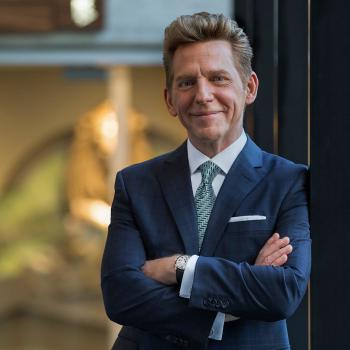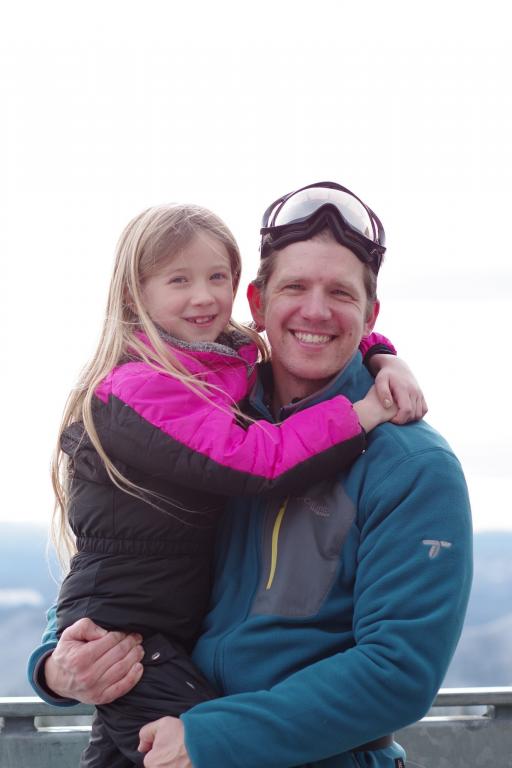A while back, I was contacted on Facebook by a college student curious about my thoughts on Scientology. I’d normally answer such directly, but as I’ve had a number of other similar questions on Digg, Twitter and other various social media venues, I figured I’d give my best shot at answering these on my blog.
So, here goes:
So, my first question really is: What is it that Scientology offers that makes it something that you wanted to make a part of your life?
This is a broad, and a pretty personal question. Not personal meaning “private and touchy” but personal in the sense that my answer to this is likely vastly different from your answer, or the other guy’s answer. Sort of like asking a catholic why they go to church.
But to answer you, there are a number of things Scientology offers which I like quite a bit. They are, in no particular order:
- Answers for day-to-day problems in life: Probably the one thing I like most about Scientology is that I’m very seldom left with lingering questions about things I run into daily in life. Questions like, “Why did that guy just act that way to me?” or “How can I improve my relationship with my parents?” or “Can I trust that guy?” or “How can I be a better parent?” or anything like that. In my personal experience, there has not been one question that I haven’t been able to get an answer for in Scientology – and an answer I personally am satisfied with not just one that someone tells me authoritatively and I’m meant to believe or something like that. So, that’s one thing.
- The Scientology community: One thing I love about being involved in Scientology is getting to hang around other Scientologists. By and large, Scientologists are extremely good people, genuine, caring & responsible. Scientologists I am around are genuinely interested in helping each other, helping the environment they are in, and do really give a crap about important issues that surround them. So, that’s another thing I really enjoy and which is a real plus about being a Scientologist.
- A reliable long-term path for enhancement: There’s another thing that I’ve come to enjoy as a Scientologist, which is that as I do various counseling actions in the religion, take various courses, etc – I am steadily handling shortcomings I feel that I have – or enhancing areas of my life that are ok but I would like to be better. Every time, in Scientology, that I’ve put effort into handling one of these areas – be it communication skill, study speed, my own personal ethics, family, etc – each has been improved with Scientology. The take-away I get from that is that for the future, I don’t need to be “worried” about getting worse, or about “growing old & dying and I still am [blankety-blank-random-problem]”. I know for myself that these issues get handled in Scientology, and I can always turn to Scientology for self-improvement.
There’s a lot more I could say on the above, but I hope that gives you a sense of my personal estimation of Scientology.
Second; how long have you been a Scientologist, and how did you get started?
My parents were Scientologists starting a few years before I was born, but I won’t really say “I was born into it.” They always made Scientology available to me, and I took my first Scientology courses when I was about 9 years old. The first course I took was a communication course and I just loved it. Next thing I knew I was at a summer camp, leading 300+ kids in singing camp songs with no back-off or embarrassment. So, I was pretty happy that it worked for me, and continued in my studies of the religion since then.
Third; what do you think of the “Golden Age of Knowledge” program that recently revamped the basic LRH material?
I think it is just outstanding and quite literally one of the most important things that has happened to the religion. Any religion (I think) can be divided into two compartments – one being the original scripture of the religion, and second being how the religion is practiced at present by its parishioners. The way I see it, one gets a wider and wider schism between the original scripture, and what people actually practice, when average members of the religion can’t simply read and understand the basic principles of their own religion. They can start to have a distorted picture of what their religion stands for, a picture that isn’t even remotely close to what the religion factually is.
As a case in point, take Christianity – a religion I actually have no problem with. However, the main authoritative scripture used is the “King James Edition” of the bible – one that was authorized a full 1600 years after Christ himself was alive. Who knows what the actual original scripture was as authored by his disciples, and what their original intentions & beliefs were as to an organized religion & belief system. It’s a debate that I think could go on for some time amongst scholars, but you won’t know the answer unless you talk to someone who was there.
So, as such, I think it of vast importance that while original manuscripts, recordings, and such are still available, that the original works and intentions of Mr. Hubbard be fully verified and released – and released with sufficient glossaries and aids so that people can actually read and understand them.
Only then can one practice Scientology and know that what you’re doing is actuallySCIENTOLOGY and not some other agreed-upon, offbeat, wacky, made-up misunderstanding that vaguely resembles Scientology.
I’ll tell you – as someone who has grown up around Scientology, and around grown-ups and little kids flinging around Scientology words which they have never actually defined, I came up with some pretty strange ideas of what some of the mostessential and basic concepts of Scientology were. Only when I read the Scientology Basics books & listened to the lectures, did I actually realize I was so far from what these basic Scientology concepts actually were.
So, as such, I am utterly grateful for the work that was put into making these materials available.
Fourth; do you believe that Scientology is for everyone? As in, do you believe that any person who approaches it with positive intention can find a place in the Church?
There were two questions there, and in my estimation, there are two answers. First of all, although I do absolutely believe that anyone can be helped with Scientology – that does not mean by extension “Scientology is for everyone”. Some people really do not have anything but evil intentions for others, and live to see others harmed. I don’t think such a person would find anything interesting in Scientology at all. There are others who are entirely entrenched in their belief system, and who have fixed ideas they are not willing to inspect or change. Those people will have a hard time with Scientology, too, as Scientology’s whole nature assumes that one will need to take new data, inspect it as to whether it makes sense, and then use it or reject it.
Now, your second sentence – do I believe that any person who approaches Scientology with positive intentions can find a place in the Church? Yes, I absolutely believe that. I think that anyone who intends to make themselves better or make others better can find their place in the Church, whether it is as an active participant, or as someone who simply uses some part of Scientology to integrate with their own religion to make their lives better.
Fifth; Is there anything more that you wished the Church of Scientology would do to improve or grow?
I have quite a bit I could say on this, but in reality, it comes down to a question of manpower. There is a tremendous breadth in how much Scientologists and the Church of Scientology take responsibility for, and it is so much more embracive than just “growing membership” or some similar task.
There is no answer for me like, “Boy, I wish they would change [blank].” For me, the problems the Church faces in growing come down to:
(a) Problems related to simply informing enough people about Scientology and what it is,
(b) Problems related to elements in the society which, if unhandled, make it impossible for the Church to do its job at all (i.e. drugs, immorality, crime, human rights issues banning religious freedom, etc) and
(c) Direct attacks on the religion from vested interests who are trying to protect their cash flow (i.e. psychiatry and big pharma and their scams to market medication at every last variation in human behaviour, good or bad)
The Church needs all the help it can get in each of these.
Tad Reeves is Scientologist, a website systems engineer, and a parent of two adorable children. He has a great time applying Scientology as a parent, and keeps up a website entitled ScientologyParent with tips and successes that he, his wife, and his friends have had in applying Scientology to the joys and challenges of parenting.








